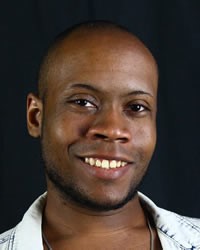In some cases, we can refer to a particular language or ethnic group among Black Africans in various parts of the world. In other cases, we have to generalize and call them “Black Africans.” This is often the case for those who have lost their culture, especially those whose ancestors came as slaves. Others came to the host country as refugees of violence, or sometimes as students or businesspeople.
Some came to Tunisia as students or businesspeople. Africans with higher education and business abilities usually thrive in Europe and the Americas. Others are fleeing violence in their homeland to Tunisia, a country with a relatively stable economy and government.
Over half of the Black Africans in Tunisia are Muslim. There are also Christians among them.
Black Africans who flee as refugees have to deal with emotional and physical trauma. Students and businesspeople need the spiritual hunger it takes to prioritize Jesus in their lives.
Pray for the Holy Spirit to move powerfully in Black African families in Tunisia, drawing them closer to the Lord of lords.
Pray that soon the Christians among them will take Christ to those who don't share their faith.
Pray for the Lord to help them adjust and thrive in their new homeland.
Scripture Prayers for the Black African, general in Tunisia.
| Profile Source: Joshua Project |












